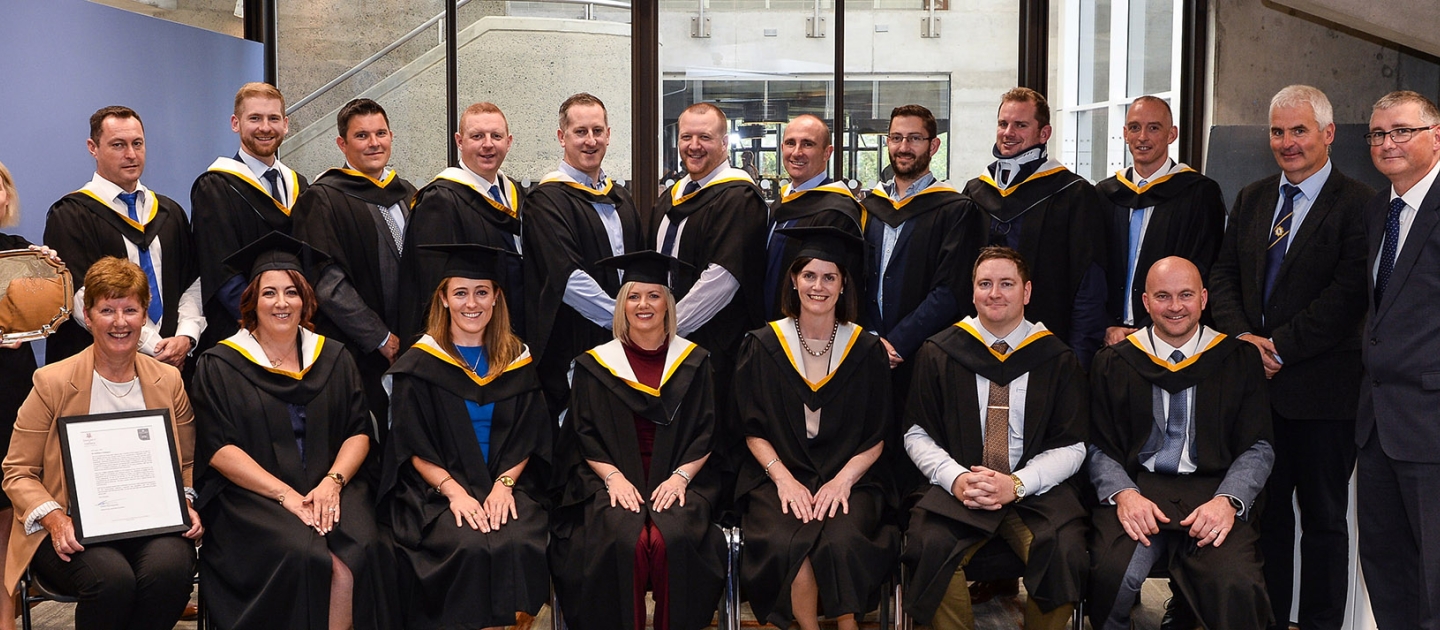Shane Kilcommins of the UL School of Law delves into a ‘close working relationship’
The first intake of recruits to the BA of Applied Policing took place in September 2014. It marked the start of a mutually beneficial educational relationship between UL and An Garda Síochána.
To date, 3,300 Garda recruits have graduated from the programme with a Level 7 degree from the Garda Training College and UL.
UL also accredits An Garda Síochána’s Postgraduate Diploma in Serious Crime Investigation, and the Criminal Assets Bureau’s Postgraduate Diploma in Proceeds of Crime, the latter of which was launched earlier this year and is being run out of UL’s School of Law.
This builds on an already strong relationship which sees UL accredit Garda level 7 and level 9 training programmes, provide an online level 8 top up programme in Applied Policing for Garda members, and an MA in Serious Crime Investigation for those who have completed the postgraduate diploma in serious crime investigation.
UL also has an undergraduate degree in criminal justice and an LLM/MA in Criminal Justice and Human Rights.

Picture credits: Alan Place
The Diploma in Serious Crime Investigation is considered the flagship of the Crime Training Faculty, reflecting excellence in investigative management. It is designed to develop the expert knowledge, leadership and management skills of garda managers and other public bodies to equip them with the knowledge and skills necessary to investigate serious crime.
The Serious Crime Investigation diploma programme is informed by best international practice in crime investigation, internal case review, tribunal reports, the Director of Public Prosecutions and experts in forensics, electronic investigation and arrests.
It seeks to support and guide managers of An Garda Síochána and other public bodies that investigate serious crime with a learning environment that uses their existing expert knowledge, skills and experiences to enable them to achieve a broader investigative leadership, management skills and investigative insights.
While this programme has been designed primarily to meet garda needs, it is also available to senior investigative officers with other regulatory agencies such as the Revenue Commissioners, including the Customs Division, and the Irish Defence Forces.
The objective of the Proceeds of Crime postgraduate diploma is to provide a recognised standard of training for staff in CAB and other law enforcement, regulatory and administrative agencies in both Ireland and internationally who require academic and professional training in the field of specific investigations. It will help to establish standard operating procedures and identify established best practice in effective proceeds of crime investigations.
Launching it in February, then UL President Dr Des Fitzgerald said it was “enabling a professional community of practice to engage with a professional community of scholarship. The programme will enhance UL’s position by continuing to build a critical mass in the areas of law enforcement and criminal justice.”
Chief Bureau Officer Detective Chief Superintendent Patrick Clavin said CAB “looks forward to building on our close working relationship with UL. The Bureau welcome this opportunity to upskill its Bureau Officers to meet the challenges posed, both nationally and internationally, in asset identification, asset confiscation and asset recovery.
The course provides the opportunity to ensure that best international practices are adhered to and the transfer of knowledge to ensure effective continuity into the future.

All of the programmes have original elements and are grounded in problem-based learning. The collaboration between UL’s School of Law, the Garda Training College and CAB is a novel collaboration for criminal justice agencies, but very in keeping with national strategy for higher education which calls on universities to engage more widely with business, industry, training colleges and communities.
The programmes are also very transparent. As the accrediting body, UL is responsible for assuring the quality of programmes offered at the Garda College, which requires constant engagement on issues such as fairness of procedures, academic integrity, and the extent to which learning outcomes for are being achieved.
Human rights and ethical policing are embedded as core programme outcomes. This ensures that these values and the community are considered in the management of all policing situations, and the training provides a continuity of learning around these issues from problem based learning in the Garda College to work based learning in the Garda divisions and in CAB. - Professor Shane Kilcommins
